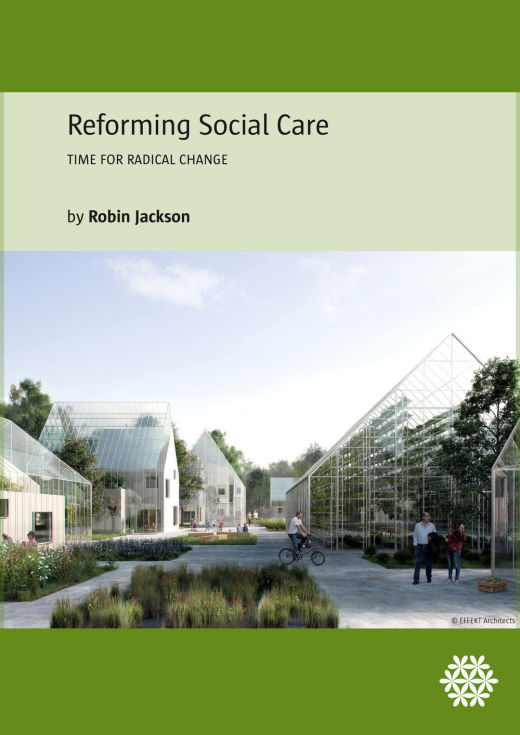This report explains why integration between health and social care is not desirable, setting out a clear vision for reforming social care in its own right.
Author: Robin Jackson
This report offers a powerful and positive vision for reforming social care and it makes it absolutely clear that there is no case for continuing to pretend that the integration of health care is either possible or helpful.
Robin Jackson challenges the ongoing and unjusitified assumption by government, and so many in the current system, that reforming social care means integrating it into the healthcare system. This is a fallacy, and it is a fallacy that reflects both general ignorance of what social care is, and a tendency to avoid the real policy questions facing social care: how to fund it; how to organise it and how to regulate it. These are the questions that need to be answered so that people who need extra assistance can live good lives with freedom, citizenship and community.
The report describes how the social care crisis has been driven, not just by austerity, but also by a system which is profit-driven, and laden with debt. Private companies have forced their way into the provision of care - the so-called market - and have been surprised and shocked to see the collapse in public funding which began in 2009. Today they have no interest in sustaining support once profit-levels drop and there is a real risk of further bankruptcies and unsustainable services being handed back to local government.
And, while the care system has become increasingly detached from public and community life, the leadership of the care system has merely increasingly centralised regulatory controls in ways that are completely ineffective. Overall the social care system has been undermined by a series of factors:
Today abuse and institutionalisation is rife, but instead of confronting the real issues policy-makers pretend that integration with healthcare will solve every problem. There is no evidence for this belief and the fact that it has been a policy imperative for over 30 years suggests it's a bad policy, distracting us from the real task - radical reform.
Robin Jackson offer a series of clear and practical proposals for reforming social care and ends by considering the positive role that eco-villages, a new movement to create cooperative forms of living in harmony with the natural world, might offer.
Read and download the free pdf in your browser, link below.

The publisher is the Centre for Welfare Reform.
Reforming Social Care © Robin Jackson 2018.
All Rights Reserved. No part of this paper may be reproduced in any form without permission from the publisher except for the quotation of brief passages in reviews.
Neighbourhood Care, Neighbourhood Democracy, social care, England, Scotland, Paper